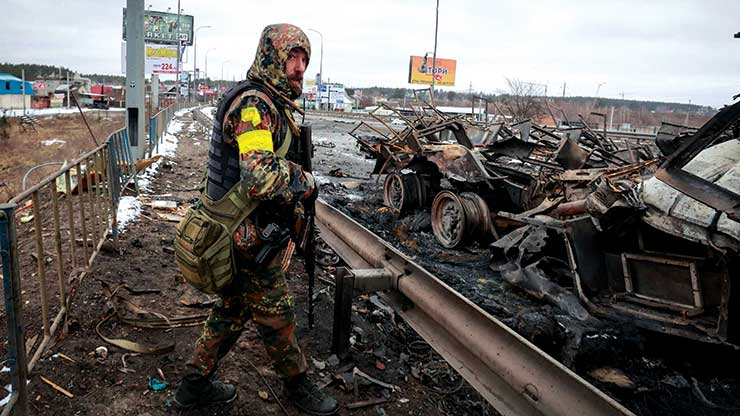
The world is currently passing through multiple crises, which were not seen in recent decades. On one hand, we have the global climate crisis, scientists have predicted that the world is well on course to exceed the temperature targets set by the Paris Accord of 2015, entailing, in the process, catastrophic consequences for the global climate as early as the next decade. To compound matters, the world economy which was slowly recuperating from the devastating blow dealt by the COVID-19 pandemic is struggling to grow at pre-pandemic levels of 2-2.5 per cent thanks to the continuing Russo-Ukraine war. The war which commenced in February 2022 sparked a global supply chain crisis of food and hydrocarbon products, the effects of which are being felt by developing countries even today. The cascading effect of the war saw a food crisis in several African countries, particularly in the sub-Saharan region, dependent on Ukrainian grains.
On the other hand, there is a humanitarian crisis in Sudan, Pakistan, Mali, Myanmar, Iran etc owing to various reasons. This shows how deeply polarised the world is on various issues, without the ability to come to a consensus on how to resolve them. This highlights the need for a new 21st-century ‘enlightenment’ for global humanity.
‘New Enlightenment’ contours
The Enlightenment originally commenced in Western Europe in the 18th century, it was the outcome of the path laid by the Protestant Reformation and directly involved in its economic wing the Industrial Revolution which catapulted the region to the centre of global civilisation for many centuries. The original Enlightenment advocated a humanistic revolution that accorded primacy to human affairs and not religious affairs. It advocated a human-first approach and was followed by revolutionary changes in the realms of arts, philosophy, religion, science, statecraft etc.
A direct outcome of the Enlightenment was the establishment of the Westphalian system of ‘nation-states’. Having stated that the focus of the 21st century should be a new, inclusive and alternate imagination of the enlightenment.
Such enlightenment should, firstly, be based on the principle of nature-oriented development or what is known in modern parlance as sustainability. While sustainability is the buzzword of today, it is still exclusively seen to be the preserve of the West. The non-western societies and institutions must be an integral part of the ecological dimension of the new enlightenment.
Socially, the new enlightenment must be based on what Markus Brunnermeier called in his book The Resilient Society a “new social contract”. This “new social contract” should be tweaked to be called “new global social contract” committed to cultural relativism, human rights and an eco-centric world that promotes the cause of not for anthropomorphic beings but other organisms, which are key to maintaining global sustainability.
Politically, it should be committed not to liberal democracy, but to what may be called ‘sustainable democracy’. Such an idea of democracy will not only be not Euro-centric in nature but will prioritise that democracy is more than a social experiment, it is a way of life. It, therefore, must be tuned to the unique societal & institutional context of each country. Having said that, it should challenge the autocratic tendencies of various regimes, which base their authority on either ideological or theocratic terms, like the case of China & Iran. However, it should not preach democracy promotion by fostering external intervention but should strive for developing grassroots movements in different societies to engender democratic values.
Asia to lead
Asia is the undoubted candidate to lead this ‘new enlightenment’ revolution. However, there can be controversy as to who should try and lead this new movement, India, South Korea, Japan, Bangladesh, and Vietnam are fit to lead the new movement. Having said that, there cannot be a single leader who can show the path, a coalition of like-minded Asian countries like the ones mentioned must lead the world to a better, inclusive and sustainable future. India emerges as the best candidate, but in keeping with the Asian and Indic spirit of ‘accommodation’, a coalition is best suited to lead it.
The path ahead is uncertain, challenges will come, and it will not be an easy task, autocracies like China, Myanmar etc will try and resist changes but they must be won over by the Gandhian virtue of moral persuasion.
References
- https://www.nationalgeographic.com/science/article/nations-miss-paris-targets-climate-driven-weather-events-cost-billions
- https://www.nationalgeographic.com/science/article/nations-miss-paris-targets-climate-driven-weather-events-cost-billions
–The writer is currently working as a Research Associate at Defence Research and Studies (dras.in) and is a columnist. The views expressed are personal and do not necessarily reflect the views of Raksha Anirveda








